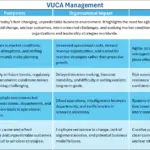Procrastination – breaking through your emotional triggers
In the TED Animated Podcast Why You Procrastinate Even When It Feels Bad, experts explain that procrastination is not simply about laziness but stems from emotional regulation challenges. Studies of procrastinating university students reveal that people often delay tasks to avoid negative emotions like anxiety, fear, or self-doubt. This leads to short-term relief but long-term stress. By reframing tasks to be less overwhelming and practicing self-compassion, individuals can reduce procrastination and enhance productivity. The podcast highlights that understanding the emotional root of procrastination is key to overcoming it.
Procrastination is a common challenge many of us face, often leading to stress and decreased productivity. Despite knowing its negative effects, we frequently find ourselves delaying tasks. Understanding the underlying causes of procrastination can help us break this cycle.
The Procrastination Cycle
Procrastination often begins with tasks that seem daunting or unpleasant. To avoid the negative emotions associated with these tasks—such as anxiety, fear of failure, or self-doubt—we divert our attention to more enjoyable activities. This avoidance provides temporary relief but doesn’t eliminate the task, leading to increased stress as deadlines approach. This cycle repeats, reinforcing the habit of procrastination.
The Role of the Brain
Our brain’s limbic system, responsible for emotional responses, plays a significant role in procrastination. When faced with a stressful task, the amygdala triggers a “fight, flight, or freeze” response, leading us to avoid the task to alleviate discomfort. This response is a survival mechanism but can be counterproductive in modern settings where avoiding tasks can have negative consequences.
Breaking the Cycle
To overcome procrastination, it’s essential to address the emotional triggers behind it. Here are some strategies:
- Recognize Emotional Responses: Acknowledge the feelings that lead to procrastination. Understanding that these emotions are natural can reduce their power over your actions.
- Break Tasks into Smaller Steps: Large tasks can be overwhelming. Dividing them into manageable parts makes them less intimidating and easier to start.
- Set Specific Goals and Deadlines: Clear objectives and timelines can provide structure and motivation, reducing the urge to procrastinate.
- Practice Self-Compassion: Be kind to yourself when you procrastinate. Self-criticism can increase stress and perpetuate the cycle. Instead, acknowledge your behavior and focus on making positive changes.
By understanding the emotional and neurological factors contributing to procrastination, we can develop effective strategies to manage it, leading to improved productivity and well-being.
- Share:
You may also like

Change Culture? This is what leaders do (and not what they say…)!
- October 23, 2025
- by salomons.coach
- in Blog

Beyond ROI: The True Impact of Executive Coaching


